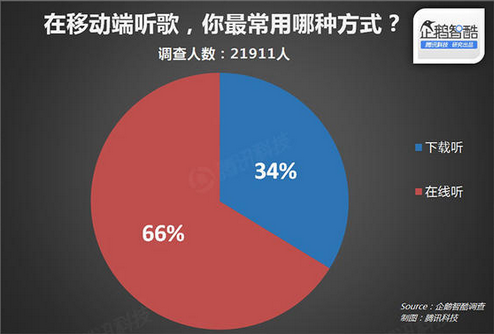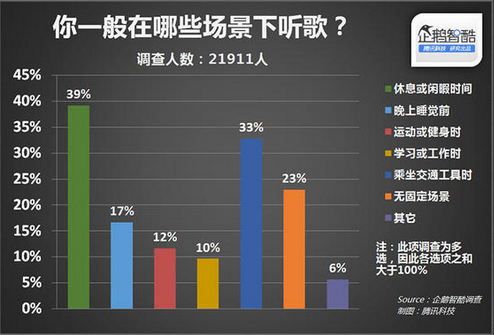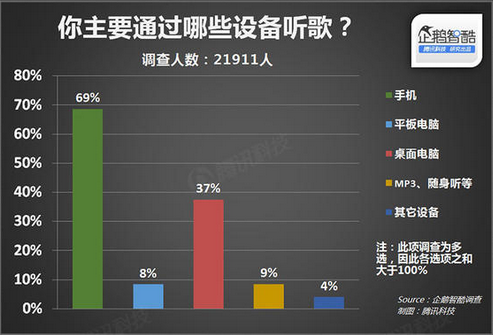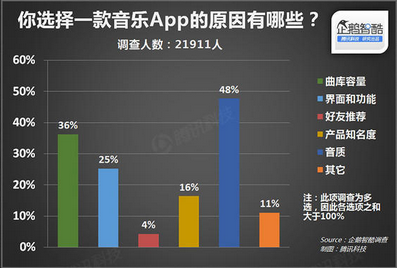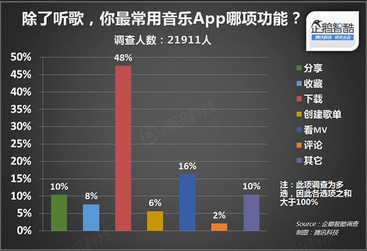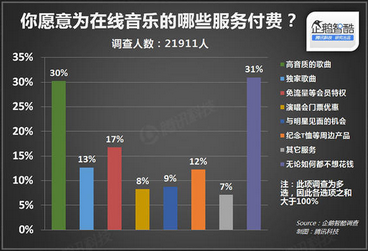Qifeir.com recently published the findings of a survey on mobile music consumption trends that was put together via Tencent Business Analysis (企鹅智酷调查). We will reproduce some of the key findings here in English.
* Insights taken from a sample of 21,911 people.
Question: How do you listen to music when you use your mobile device?
34% Listen to downloaded content
66% Listen via a streaming service
Question: When do you listen to music?
39% During their “spare time” (we’re guessing lunch breaks / between classes)
33% During time spent on transportation
23% No particular time or place
17% Before going to sleep
12% When doing sport / excising
10% When studying or working
6% Other
*Multiple answers accepted
Question: What device do you use to listen to music?
69% Mobile Phone
37% Desktop Computer
9% Portable music Device (MP3 player etc.)
8% Laptop
4% Other Device
*Multiple answers accepted
Question: What’s most important to you when choosing a music app?
48% Quality of music
36% Music Catalogue
25% UI and functions
16% App awareness (branding)
11% Other
4% Recommendation from friends
* Multiple answers accepted
Question: Apart from listening to music, what other functions do you use?
48% Download content
16% Watch music videos
10% Share content
10% Other
8% “Favourite” songs
6% Create playlists
2% Leave comments
* Multiple answers accepted
Question: What services are you willing to pay for?
31% Don’t want to pay for a music app at all
30% Access to high-quality songs
17% Premium membership (with free cellular data / caching)
13% Exclusive music
12% Merch
9% Win opportunities to meet artists
8% Discounts on concert tickets
7% Other services
* Multiple answers accepted
Changing User Behaviours:
- Listening to music via mobile is garnering mainstream adoption, with many apps reporting over 100m downloads to date.
- Listening to music online is now a mainstream phenomenon.
- The proportion of premium subscribers is very low, so services need to work more on promoting the benefits of paid subscriptions.
- Most people prefer to listen to pop songs: experience personalization / recommendation is weak.
- Sharing is becoming popular, with users giving their recommendations via key social media platforms.
The Changing Music Industry:
- Online music platforms now also have large user bases on mobile devices.
- Competition over copyrights and exclusive licensing is becoming a key means of differentiating.
- Most music apps have a paid tier but few music fans are willing to pay.
- Multi-platform functionality that allows users to switch between PC and mobile is popular.
- Caching music for offline listening can solve the problem of poor network speeds.
- Setting up musician pages in apps allows artists to communicate directly with users.
- Individuation and recommendation are becoming the focus of R&D in CN platforms.
